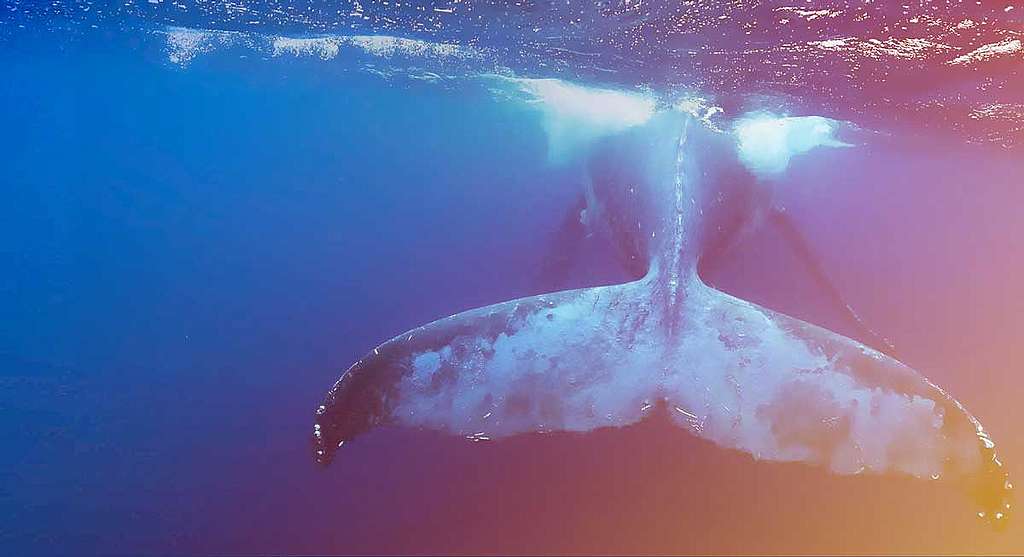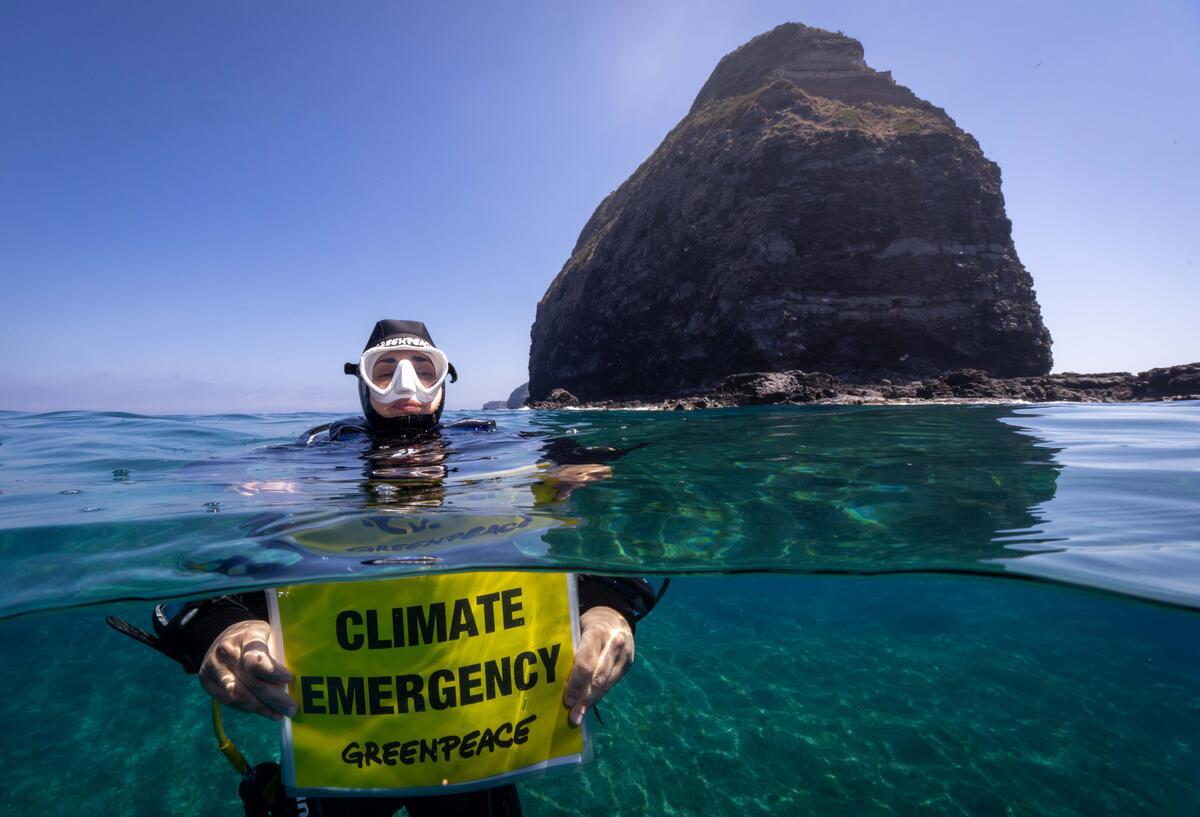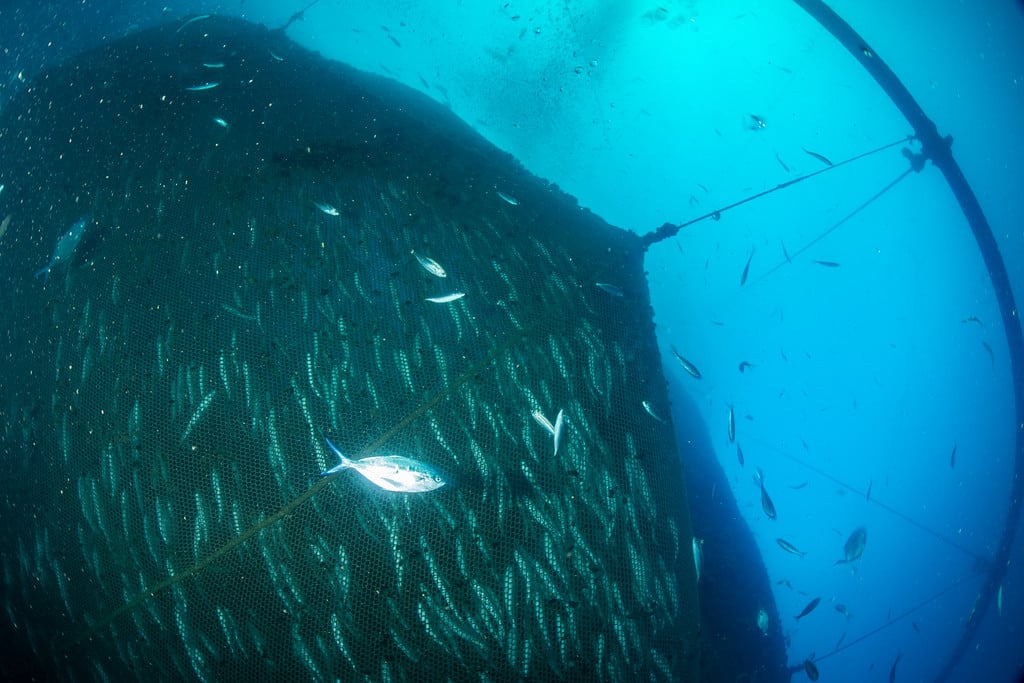Four dead sperm whales off the coast of Sicily are being documented by Greenpeace Italy and researchers. Three of the whales were recently found stranded on North coast of the island. The fourth – sighted two days ago off the Favignana island – appears to be still in the water.
Greenpeace Italy is today sharing images collected by researchers of the Department of Comparative Biomedicine and Food (BCA) of the University of Padova during their necropsy of the last two sperm whales stranded in Sicily:
- Near Palermo, in one of the two whales examined yesterday, pieces of clothe hangers and a piece of hard plastic was found.
- In another whale examined yesterday, near Milazzo, nothing was found.
- Plastic has been found in a sperm whale stranded last Friday, near Cefalù.
- The three stranded whales were young and without evident signs of any interaction with nets or boats. [1]
“It still needs to be established what are the causes of the death of the animals and only detailed necropsy investigations following international protocols will clear that up. At the moment we are analyzing samples taken from carcasses to verify the possible presence of infections or particular pollutants,” said Sandro Mazzariol, Professor of Veterinary Pathological Anatomy of the Department of Comparative Biomedicine and Food (BCA) of the University of Padova and coordinator of the Cetaceans’ strandings Emergency Response Team. “It is, however, worrying to have found, at a first macroscopic analysis, the plastic in the stomach of two of the three animals stranded. This confirms that this pollution is abundant at the bottom of the sea and mostly affects young animals”.
On May 15th, another four sperm whales have died along the Algerian coast as a result of fishing nets. In one week, eight sperm whales in the Mediterranean Sea have died.
According to a preliminary report, published only a few days ago, on the stranding of cetaceans in Italy carried out by the same researchers from the University of Padova, the pollution from plastic seems to affect mostly young cetaceans and those who dive deep, like sperm whales. In 33 percent of the sperm whales stranded in the last 10 years in Italy, plastic was found in the whales’ stomach.
“If you understand that sperm whales are in danger of extinction, you understand that the recent strandings are a very serious loss for our seas,” said Giorgia Monti, an Ocean Campaigner at Greenpeace Italy. “We do not yet know the causes, but their death should sound an alarm that the degradation of our seas is reaching the point of no return, so we must intervene immediately to protect the most vulnerable species”.
Recently, Greenpeace Italy, together with The Blue Dream Project, is engaged in a research expedition, monitoring and documenting the state of our seas, during which they will focus on the amount of microplastics present in the Central Tyrrhenian Sea.
ENDS
Photos can be found here.
Notes:
In the Mediterranean, it is estimated that there are less than 2500 mature sperm whales left, a similar species to those found in the Atlantic Ocean. Sperm whales have long gestation periods – between 14 and 15 months – and reach sexual maturity between 7 and 13 years in the case of females, and between 18 and 21 years in the case of males, the loss of such young specimens, which have not yet had the opportunity to reproduce, is a massive loss for the conservation of this species.
[1] According to the analysis of the researchers involved in the necropsy – CERT, a team of experts from the Department of Comparative Biomedicine and Food (BCA) Department of the University of Padova, the National Reference Centre for Marine Mammal Diagnostics (CreDIMa), the Experimental Zooprophylactic Institute of Palermo and the University of Messina.

Cambiamenti climatici, pesca eccessiva, estrazioni minerarie, trivellazioni, plastica: i nostri oceani subiscono di tutto per colpa dell’avidità umana. Spesso sono proprio le zone d’Alto Mare, al di fuori della giurisdizione degli Stati costieri, a diventare prede degli interessi di pochi Stati ricchi e potenti o di aziende spregiudicate. Lontano dagli occhi, lontano dal cuore? Non possiamo accettarlo: per difendere il fragile e meraviglioso ecosistema marino, serve creare una rete di Santuari d’Alto mare su scala planetaria.
Partecipa


